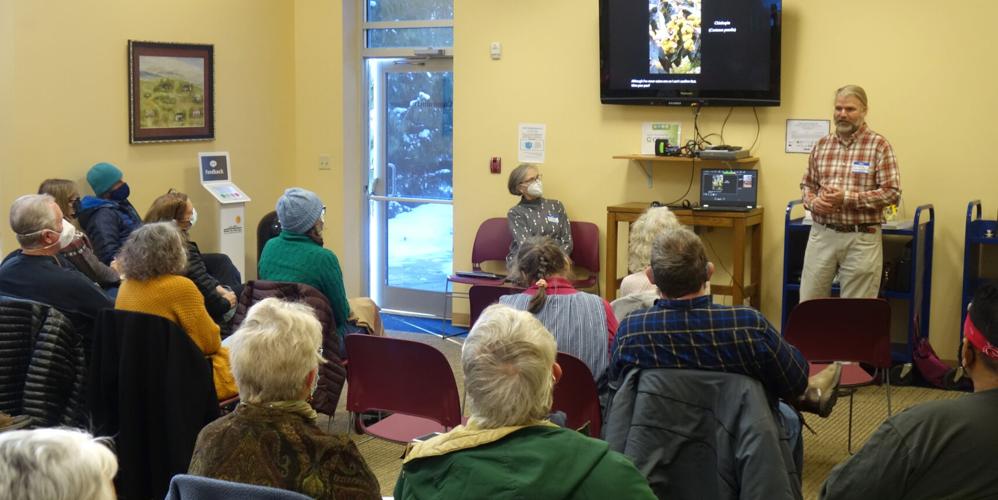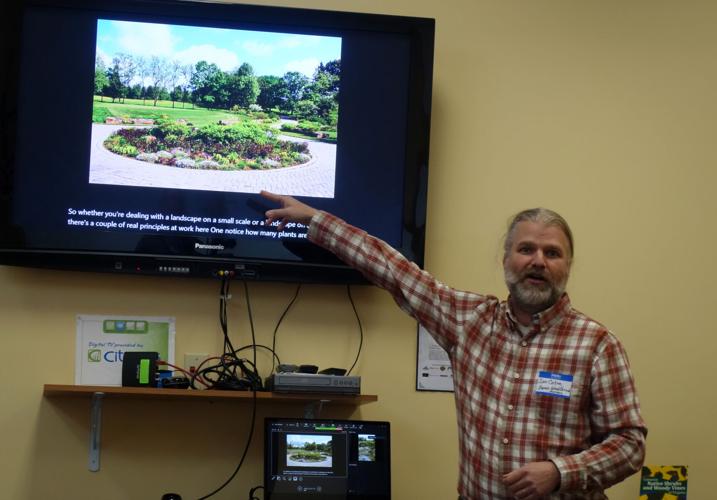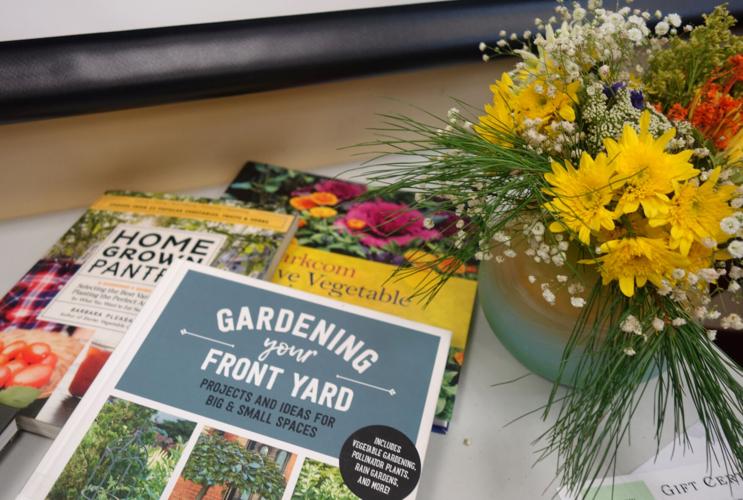More than 35 Floyd community members enjoyed a slide show presentation from Floyd’s Ian Caton of Wood Thrush Native Plants Nursery on Saturday, learning some of the basics of gardening using native plants.
The free-to-the-public event was hosted by the Partnership for Floyd and Floyd Flower Power, a new citizen initiative to promote more flower gardens in Floyd and to share gardening resources.
The Jessie Peterman Memorial Library provided the Community Room and a selection of books related to the topic, and homemade refreshments were served.
Caton spoke about the environmental benefits of using native plants, the foundation of a healthy ecosystem, as well as the importance of aesthetics in a native garden.
He recommended adding bold colors to designs and planting thick, dense and diverse plants to deter deer from freely chomping down. Birdboxes and garden sculptures add to a garden’s attractiveness. Fences and stone walls are framing devices that add structure, he said.



